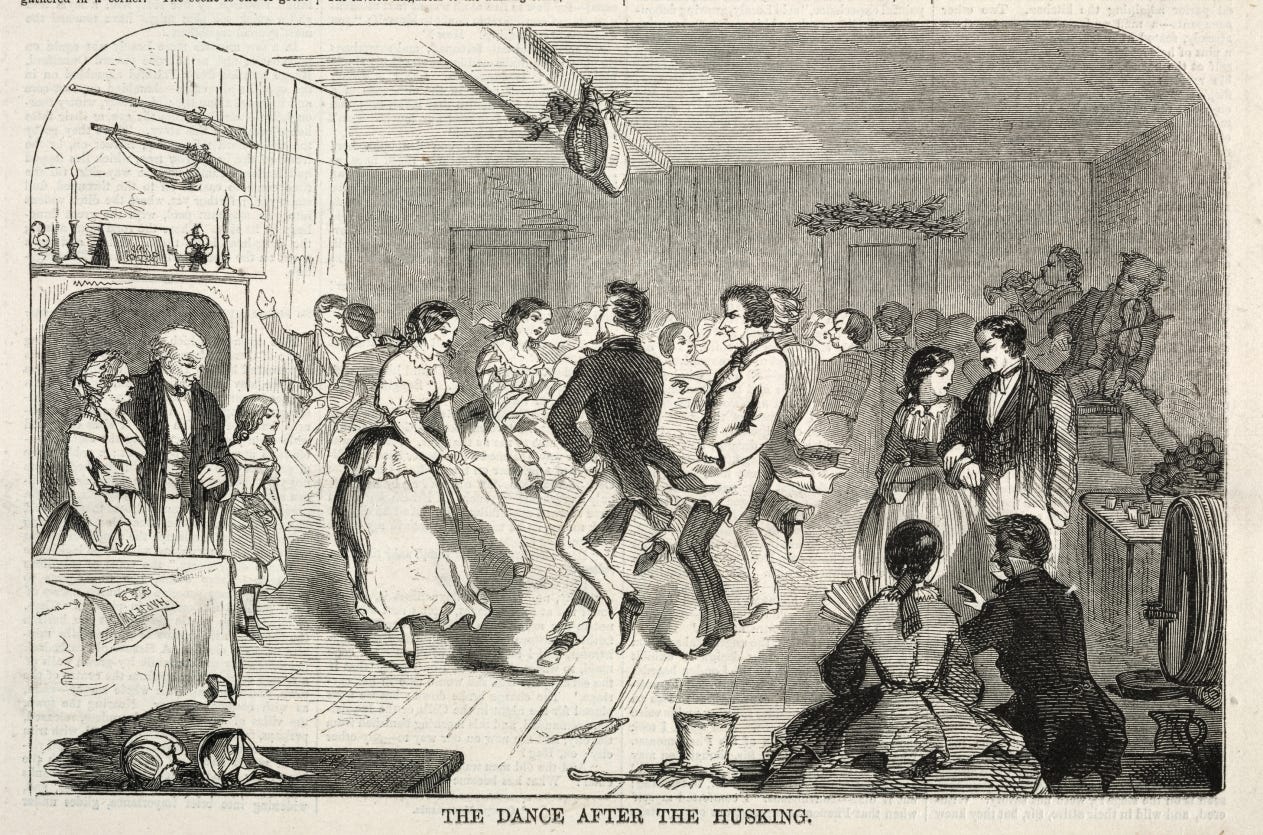
She must be kidding, I thought.
Like a lot of people, I’m a creature of habit. Intellectually curious, sure, but not behaviorally so. I’ve spent most of my free waking hours as an adult doing predictable stuff: reading, writing, exercising, grabbing drinks, watching sports or shows. I haven’t devoted much of any time to what those in the psychological community call “novel experiences.”
Which is why, when my girlfriend asked if I wanted to go contra dancing with her on Friday night, I didn’t think she was serious.
She knows I’m not the spontaneous type. Though a graduate school professor once described me as “affable” (he meant this as a compliment…I think), I can be closed-minded when it comes to trying new things, especially something as seemingly incongruous with my urban sensibility as a hoedown.
But laughing wasn’t going to dispel her query, I realized. It turned out a friend of hers had invited us to this event. And both of us knew we had nothing going on otherwise. As I returned her expectant look, I saw the sum of all the hours I’d spent watching March Madness the past two weekends and felt my defenses drop.
Let’s do it, I said.
To be clear, it wasn’t my first rodeo at a niche nocturnal gathering in the sticks. When I was the arts and entertainment reporter for The Berkshire Eagle, I was assigned to write a weekly feature on the nightlife of a bucolic region. It wasn’t a coveted gig, to put it mildly. For all its cultural offerings, the Berkshires wasn’t exactly brimming with social vibrancy, and finding a new happening each week strained both my imagination and the very definition of nightlife. I reported on a monthly meeting of a quilting group, a life drawing session of a mermaid, and a bingo night at the Hinsdale Lions Club, among other rowdy affairs.
But there was a big difference between observing and participating in these events; when I was at the Eagle, I could always hide behind my notebook. I wouldn’t have the same luxury while contra dancing.
The genre alternatively known as country dancing is essentially a group activity. It requires couples to stand shoulder-to-shoulder in a line with other partners, repeat several moves chosen by a caller, and then progress down the line to hold hands, lock arms, and spin around with a new duo. The dance traces its roots to the U.K. and France, where it’s known as “contredanse.” During colonial times, it found legs in New England, and it’s endured in rural parts of the region ever since, especially in New Hampshire.
I knew none of this as I approached the town hall in New Hampshire where this particular gathering would be held. We were a little early, so we toured the area for a bit. It was classic rural New England—train tracks, winding river, “circa” houses.
The flat facade of town hall was quintessentially vintage, too. Inside, a woman behind a desk informed us that admission was a sliding scale, $12 to $20, whatever we could afford. I affixed an “I’m learning” pin to my plaid shirt and tried not to think about paying for the honor of making a fool of myself.
It didn’t end up being that bad, though. There was lots of hand-holding and awkward eye contact with strangers—far from ideal for a shy germaphobe. But in the long, whirling lines of couples, there was a certain anonymity that protected us beginners from much embarrassment. A lot of novices had shown up, anyway—maybe a third of the few dozen in attendance. Others were clearly veterans, stepping in sync to the music onstage and lending their guidance to anybody struggling. One guy wore a kilt.
It was interesting, if not exactly what I’d consider a rollicking good time. After about an hour and a half of spinning and do-si-do-ing, we’d had enough. My girlfriend said goodbye to her friend and thanked me for my open-mindedness.
Really, I should have been the one thanking her.
I didn’t leave thinking contra dancing was my jam, mind you. I don’t know if I’ll ever go back. But I did appreciate that nobody was looking at a phone (or recording on one); that people were kind; and that, no matter how it turned out, I’d put my assumptions aside and given myself at least a chance to learn something new.
I probably need to do more of that. A lot of us do.



